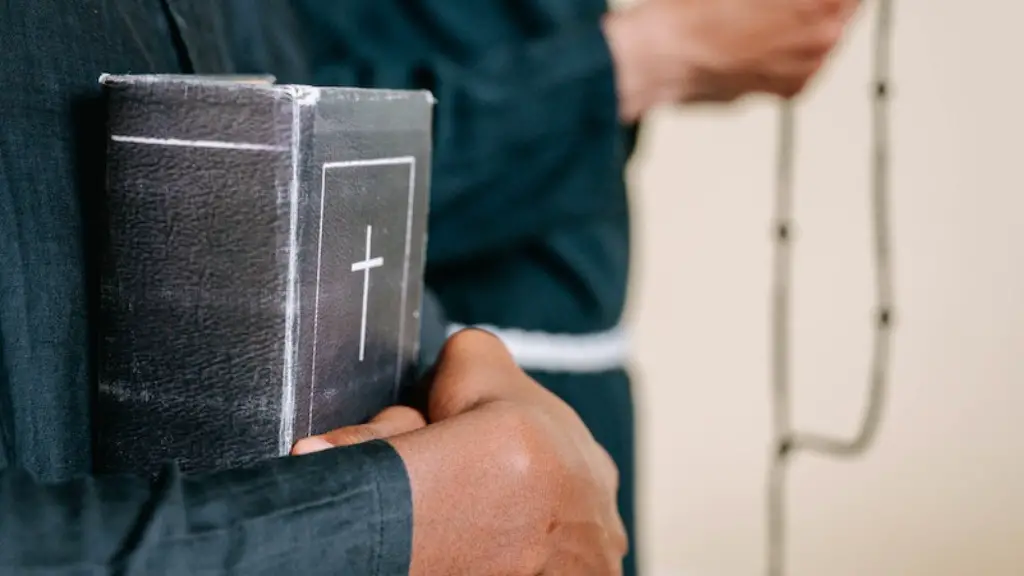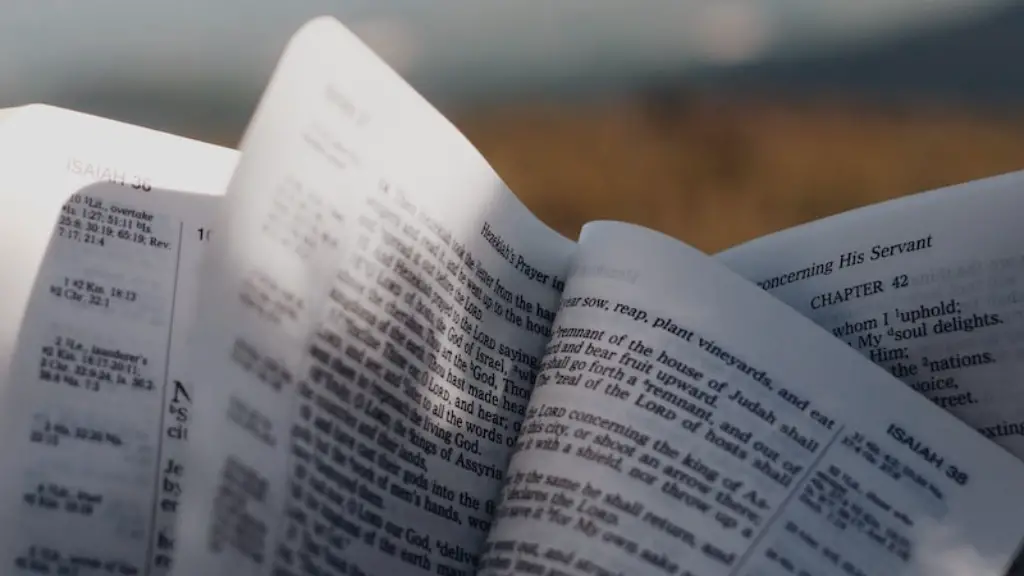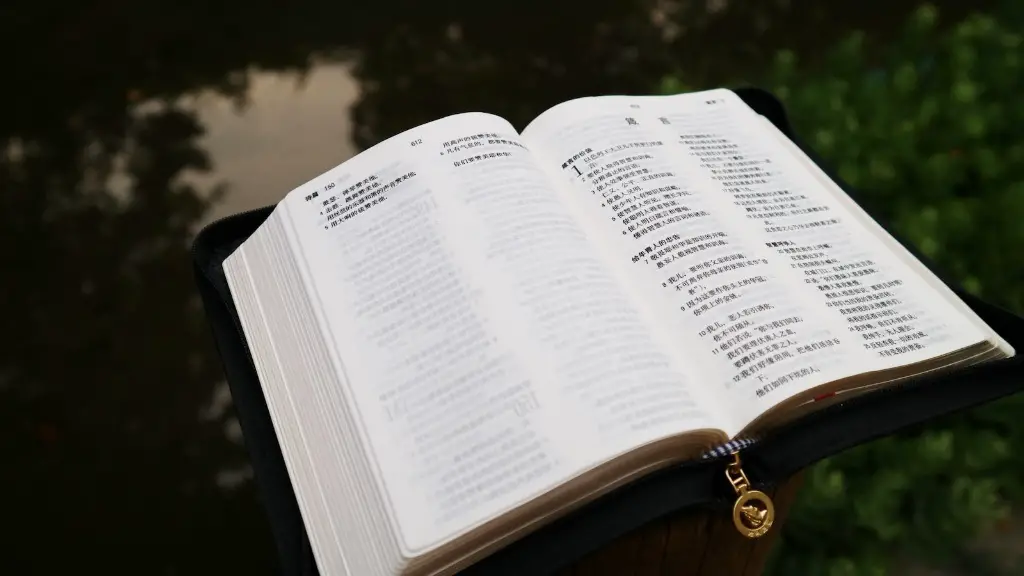As recorded in various accounts from the Bible’s Old Testament, Jeremiah was one of the first prophets of the Israelites, who spoke out and acted on behalf of his people. His name is derived from the Hebrew word “yirmiyah,” which means “Jehovah will exalt.” Jeremiah was called to preach in the Thirteenth year of the reign of King Josiah of Judah, and it is believed that he acted and spoke as a prophet for 50 years.
According to the Bible, Jeremiah sought to spread the message of reform throughout the Kingdom of Judah in an effort to avoid the nation’s coming destruction and consequence of their engaging in idol worship. In addition, Jeremiah acted as as an advocate of justice and mercy, speaking out against the mistreatment of the less fortunate and the wickedness of Jerusalem. He provided in-depth accounts of his warnings and pleadings to the people, usually in the form of a long oration.
Jeremiah’s words and instructions often resulted in strong opposition from the King and members of the Royal court, whose preference was to stick with the traditional religious practices of their ancestors. The prophet often endured scorn and threats from crowds, and was even placed under watch by priest Pashur. The rejection of his message caused him to take desperate measures, including engaging in self-harm. Despite the treatment, Jeremiah still urged the people to listen to the word of God.
The Bible provides an extensive account of the many prophecies of Jeremiah, ultimately highlighting his devotion to God and his role as a great leader of the people. Jeremiah’s actions and words had a lasting impact on the nation and its people, even superseding his own lifetime. Jeremiah’s prophetic dialogue can be found in both the Book of Jeremiah and the Book of Lamentations in the Bible.
How Did Jeremiah Propose Reform?
In an effort to enact reform, Jeremiah proposed ideas and advice which were in direct contrast with Babylonian customs of the time. He encouraged honesty and fairness while condemning slavery, idolatry and violence, which were all rampant throughout the kingdom. He sought out to lead people away from their idolatrous behaviors, toward the honest and accurate worships of the time. He reminded people that God did not need the assistance of idols for them to be faithful to Him, and assured them of God’s mercy and kindness.
He proposed for the people to trust in God above all other gods and to find happiness through love and genuine forgiveness. Through leading with God’s word, Jeremiah showed people how to have meaningful and honest relationships with each other. This attracted attention from both the people and authorities, with some mocking him and others viewing him as a possible savior.
How Did Jeremiah Seek Justice?
Jeremiah also sought to advocate justice and mercy, bringing the attention of the people onto those less able to plead for themselves including widows, orphans, the poor and the oppressed. He urged the people to release those who had become captives of the war and to let the debt of those prisoners of war be paid off by the ones responsible for enslaving them. He even encouraged people to contribute to the prisoners’ expenses and to spare them from any unjust punishment or hard labor.
Jeremiah also denounced those of power who falsely accused the innocent, along with those who spread malicious rumors and gossiped about the unreputable. To ensure justice for the people, Jeremiah proposed for the country’s laws to be adhered to strictly and for the individuals believed to have violated them to be punished accordingly, with mercy and grace being shown to the correctly identified offenders.
How Did Jeremiah Handle Opposition?
Although Jeremiah was largely accepted by many individuals in the kingdom, his words were not in tune with the King’s traditional religious practices. More importantly, the King believed the Prophet’s mission was bringing the downfall of their nation, and soon started to take action against Jeremiah, such as Jeremiah being shut in the stocks by officials almost immediately after his calling. Jeremiah, however, stayed resolute in his work and continued to plead, despite the country’s growing unrest.
At times, Jeremiah had to flee or hide in order to avoid the King or violence from vigilantes in the kingdom. He was even forced to go into exile in Egypt but still, managed to continue serving the Lord through his prayers and pleadings, released in writing to continue his mission. Despite opposition and oppression, the Prophet managed to find a way to come out in full force with the Lord’s message.
How Did Jeremiah Inspire Others?
By taking a stand and summoning courage against adversity, Jeremiah was an inspiration to those he spoke to and those who heard his words. Through his commitment to seek justice, Jeremiah offered the people glimpses of what the world could be like under God’s rule and grace. As a leader of the people, Jeremiah tirelessly and faithfully conveyed God’s divine message and served as a friend, advisor and mentor for the folks.
The Prophet strived to stay true to his mission and found strength in his relationship with God and challenged those around him to view the same reverence. This helped inspire the people in their relationship with the Lord and served as a reminder of the importance of being faithful in seeking repentance and redemption.
What Legacy Did Jeremiah Leave Behind?
Jeremiah’s legacy is seen in the many accounts left in the Bible, each offering a unique and expansive perspective into the Prophet’s mission, teachings, and relationship with God. He remains an example to this day of fortitude, faith and conviction in one’s mission and beliefs, even in times of great opposition, danger and disappointment. His legacy of justice and truth continues to serve as a reminder of the strength and courage needed in times of adversity.
How Was Jeremiah an Advocate of Forgiveness?
In addition to advocating for justice, Jeremiah also championed the need for forgiveness, mercy and compassion. He believed that repentance was a necessity to please God and be part of his divine plan. To this end, Jeremiah rejuvenated people’s understanding of the power of repentance and shared the need for mercy and forgiveness with the people. He reminded the people that even if they had wronged, God was willing to forgive them for their transgressions if they humbly asked for it.
He asked the people to remember the kindness and mercy of God and for them to show their faith in Him through grace and redemption. Jeremiah continually reminded the people that if they asked for forgiveness, God would bring them closer to him and show them the path of redemption. By inspiring and showing the power of mercy and forgiveness, Jeremiah beautifully reminded people the consequences of wrongdoing and the beauty of repentance.
What Role Did Jeremiah Play in the Coming Destruction?
In an effort to spread his message and avoid the country’s coming destruction, Jeremiah led a number of efforts to spur reforms within the kingdom. Through his pleadings, he called for an end to the people’s idolatrous practices. However, these efforts were often met with destruction from outside forces, and the destruction of Jerusalem and its Temple sent a harsh reminder to Jeremiah of the people’s disobedience.
Regardless, Jeremiah played a vital role in helping the people of Judah recover and rebuild. His words helped lift their spirits and renewed their faith in the will of the Lord. He helped provide the people with some direction, rather than the destruction they were used to,and motivated them to pick up the pieces and move forward.
What Impact Did Jeremiah Have On the People?
Through his dedication to justice, mercy and truthfulness, Jeremiah’s actions and words had a lasting impact on the nation and its people. He conveyed God’s message with courage and dedication, and sought to instill the importance of faith and justice within the land of Judah. Jeremiah’s powerful orations provided the people with faith, hope and courage to persevere in the face of adversity.
By introducing ideas and concepts of forgiveness, redemption and repentance, Jeremiah created a path for the people that would eventually lead to the salvation of their nation. Despite opposition and persecution, the Prophet continued to instill faith and spread hope among the people of Judah, and his legacy remains as a reminder of God’s guidance and mercy.




